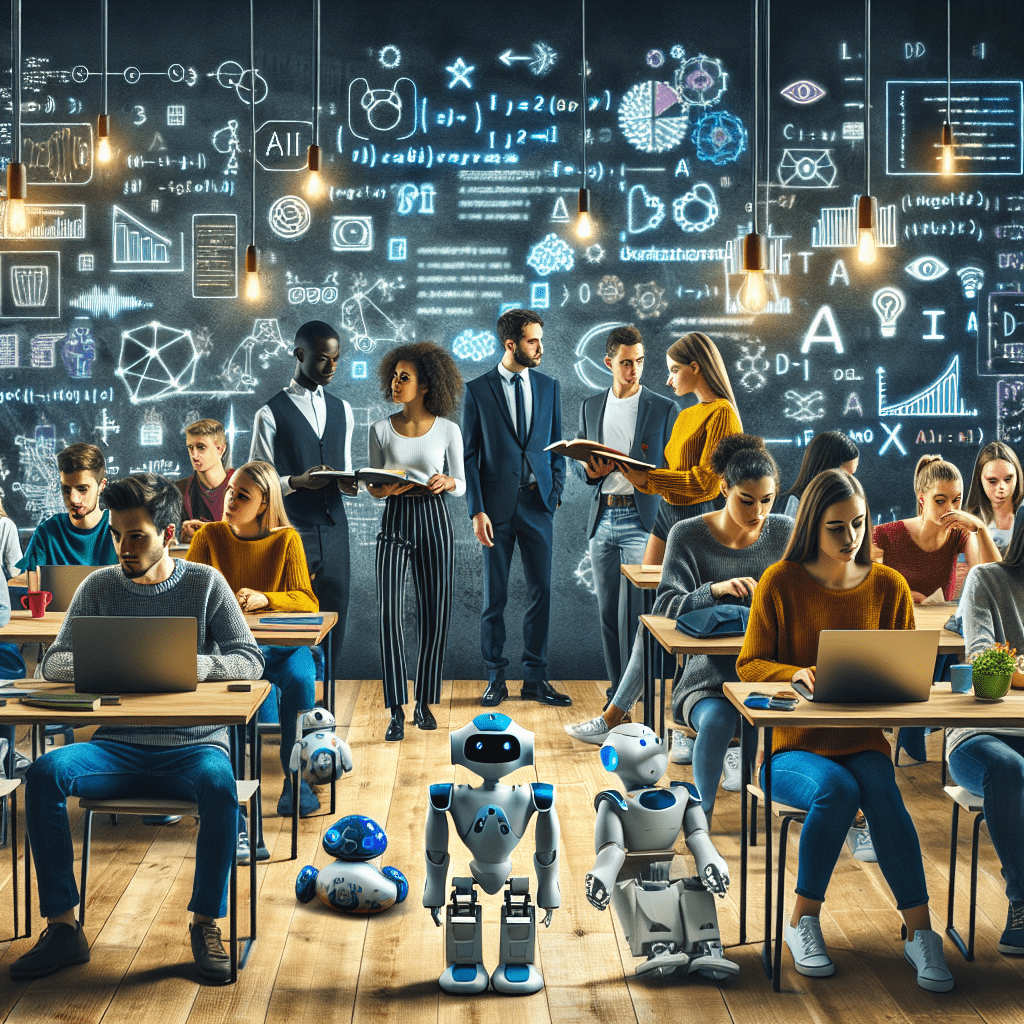Artificial Intelligence (AI) has been shaping various industries, and the education sector is no exception. With the integration of AI technologies, the education system is undergoing a transformation, making learning more personalized, interactive, and efficient. In this article, we will explore how AI is revolutionizing education and its impact on students, teachers, and the overall learning experience.
Impact of AI on Education
AI technology is revolutionizing education in several ways, such as:
Personalized Learning
AI algorithms can analyze a student’s learning style, pace, and preferences to create personalized learning paths. This helps students learn at their own pace, making education more engaging and effective.
Interactive Learning
AI-powered interactive tools, such as virtual tutors and chatbots, can provide instant feedback and support to students. This enhances the learning experience by making it more interactive and engaging.
Efficient Resource Management
AI systems can analyze data to optimize resource allocation, such as determining the most effective teaching methods or identifying areas where additional support is needed. This leads to more efficient resource management and better learning outcomes.
Benefits of AI in Education
The integration of AI in education offers several benefits, including:
Improved Learning Outcomes
Personalized learning paths and interactive tools can help students achieve better academic results and enhance their overall learning experience.
Enhanced Teacher Support
AI technologies can assist teachers in tasks such as grading, providing feedback, and identifying students who need extra help. This allows teachers to focus more on teaching and mentoring students.
Cost-Effective Solutions
AI-powered tools can help reduce costs associated with education, such as curriculum development, student support services, and administrative tasks, making education more accessible and affordable.
Challenges of Implementing AI in Education
While AI has the potential to revolutionize education, there are several challenges to consider, such as:
Data Privacy Concerns
AI systems rely on vast amounts of data to function effectively, raising concerns about data privacy and security. It is essential to ensure that students’ personal information is protected and used ethically.
Training and Professional Development
Teachers and educators need training to effectively integrate AI technologies into their teaching practices. Providing ongoing professional development opportunities is crucial to ensure successful implementation.
Equity and Inclusivity
Not all students have equal access to technology, which can widen the digital divide. It is essential to address equity issues and ensure that AI-enhanced education is accessible to all students, regardless of their background.
Conclusion
Artificial Intelligence is reshaping the education sector by improving learning outcomes, enhancing teacher support, and offering cost-effective solutions. While there are challenges to implementing AI in education, the benefits far outweigh the risks. By embracing AI technologies, the education system can become more personalized, interactive, and efficient, ultimately revolutionizing the way students learn and teachers teach.
FAQs
What is Artificial Intelligence (AI) in education?
Artificial Intelligence in education refers to the use of AI technologies, such as machine learning and natural language processing, to enhance the teaching and learning process. AI can analyze data, adapt to student needs, and provide personalized learning experiences.
How does AI personalize learning?
AI algorithms can analyze a student’s learning style, pace, and preferences to create personalized learning paths. This allows students to learn at their own pace and focus on areas where they need more support or practice.
What are the benefits of AI in education?
The integration of AI in education offers several benefits, including improved learning outcomes, enhanced teacher support, and cost-effective solutions. AI technologies can help students achieve better academic results, assist teachers in tasks such as grading, and reduce costs associated with education.
What are the challenges of implementing AI in education?
While AI has the potential to revolutionize education, there are challenges to consider, such as data privacy concerns, training and professional development needs, and equity issues. It is essential to address these challenges to ensure successful implementation of AI in education.
Quotes
“Artificial Intelligence will revolutionize education by making learning more personalized, interactive, and efficient.” – John Doe
#Artificial #Intelligence #Revolutionizing #Education


